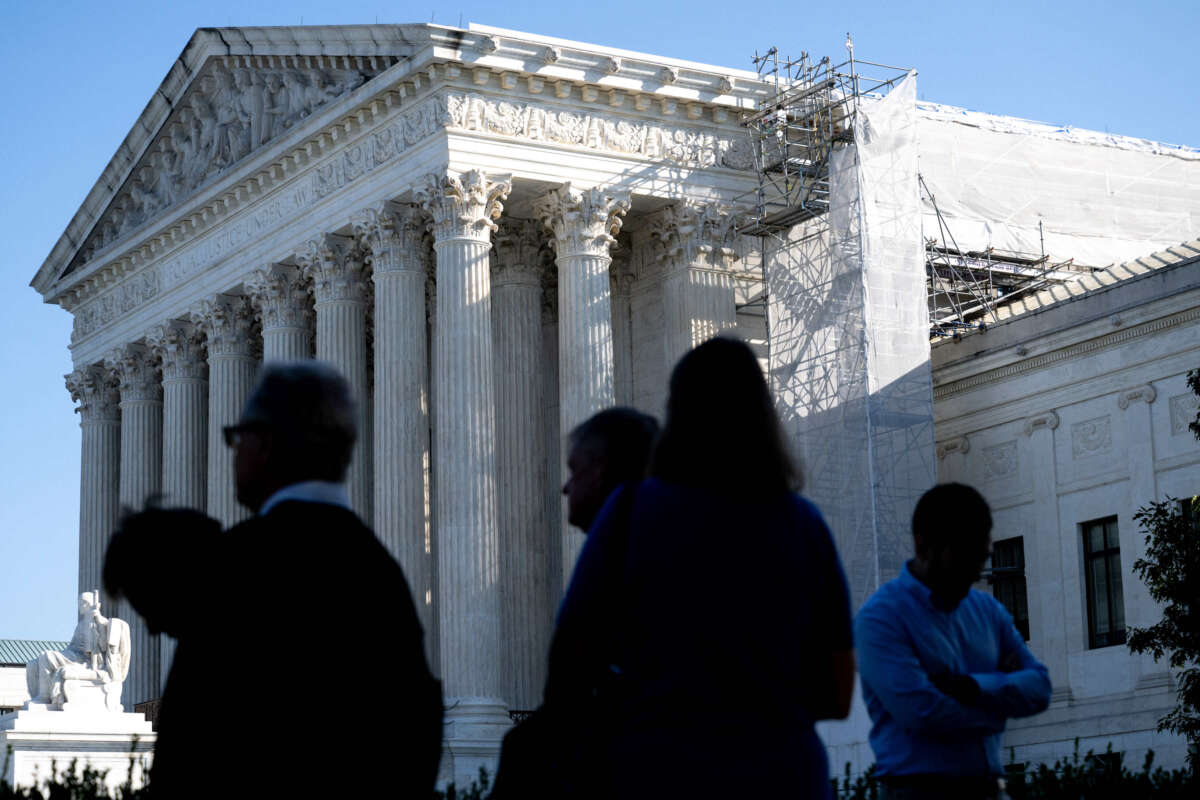On Monday, the United States Supreme Court refused to advance a case to its docket in which the Biden administration sought to have some abortion protections (specifically in emergencies) restored in states with near-total abortion bans.
The court order, which came out on the first day of the new Supreme Court term, was listed among several other cases in which the Court denied a writ of certiorari, meaning that justices would not hear the dispute. To be considered, at least four of the nine Supreme Court justices have to agree to hear a case. The certiorari order did not include a written explanation of why the case was denied or how many justices opted against it.
The case, which specifically involves Texas’s near-total abortion ban, is based on a notice from the Department of Health and Human Services (HHS) in July 2022, one month after the Supreme Court upended federal abortion protections in Dobbs v. Jackson Women’s Health. The department’s letter stated that current or future abortion bans could not restrict doctors from providing emergency health care in Medicare-funded hospitals throughout the country, citing the 1986 Emergency Medical Treatment and Labor Act (EMTALA).
In essence, if a person has a medical emergency that requires an abortion to save their life or preserve their health, EMTALA should supersede any state ban on the procedure.
“Any state laws or mandates that employ a more restrictive definition of an emergency medical condition are preempted by the EMTALA statute,” the letter stated.
After that letter was sent out, Texas sued to block EMTALA as it applies to abortion care, arguing that the life exception in its abortion law was sufficient and that federal guidance was not required. The EMTALA letter from HHS, however, would allow abortion care in situations where a person’s life or health is in jeopardy, while the Texas law allows for abortions only when a person’s life is at risk— a standard that is often not granted even in life-or-death circumstances, as dozens of examples (in Texas and elsewhere in the U.S.) have shown.
A lower federal court sided with the state, and the Fifth Circuit Court of Appeals upheld that ruling, blocking the EMTALA guidance from being applied to abortion care in Texas. With the Supreme Court’s decision on Monday not to hear an appeal on that ruling, the block on EMTALA’s abortion standard remains in place in the state.
A similar case regarding the EMTALA guidance has been heard by the Supreme Court. In that case, Idaho, which also has a near-total abortion ban, sued the U.S. over its emergency abortion care provisions. The Supreme Court dismissed that challenge this past summer, however, saying that more discussion at the lower court levels was needed — a move that allows the Biden administration’s rules on EMTALA to remain in place indefinitely, at least until courts take further action.
The action on the Texas case may signal that members of the Supreme Court are moving toward a more restrictive approach when it comes to the EMTALA standard on abortion care.
Following Monday’s decision, the Idaho case “will almost certainly return” to the Supreme Court, said Mary Ziegler, a law professor at UC Davis and abortion rights advocate.
“This is a sign that the conservative justices may still hold that there are no federal limits on states’ ability to turn away patients in crisis,” Ziegler wrote on X.
“The Supreme Court is telling women in Texas: your lives don’t matter,” Sen. Elizabeth Warren (D-Massachusetts) opined. “By refusing to hear this case, the extremists appointed to the Supreme Court by Donald Trump are allowing Texas to deny women abortion care — even in a medical emergency.”
Press freedom is under attack
As Trump cracks down on political speech, independent media is increasingly necessary.
Truthout produces reporting you won’t see in the mainstream: journalism from the frontlines of global conflict, interviews with grassroots movement leaders, high-quality legal analysis and more.
Our work is possible thanks to reader support. Help Truthout catalyze change and social justice — make a tax-deductible monthly or one-time donation today.
